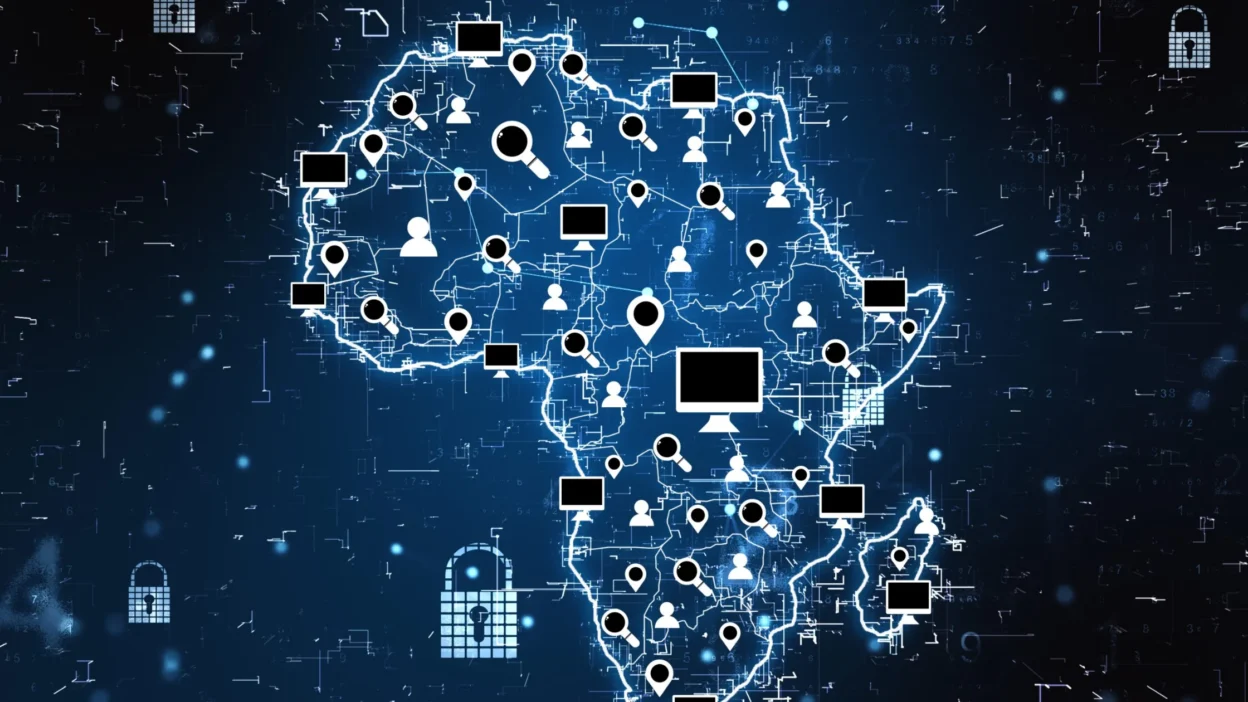Cybersecurity is no longer a luxury. It is a necessity, and one Africa can no longer afford to overlook.
Across the continent, businesses are undergoing rapid digital transformation. From fintech in Lagos to e-commerce in Nairobi, digital platforms are driving economic growth. Yet, beneath this momentum lies a dangerous oversight: Africa’s cybersecurity readiness is not keeping pace. This article explores the current state of cybersecurity in Africa, the challenges businesses face, and the urgent opportunities for action.
Africa’s Digital Leap — Without a Safety Net
The rise of mobile banking, digital health, and online commerce has brought undeniable benefits. However, it has also exposed critical infrastructure to cyber threats. Financial fraud, identity theft, and ransomware attacks are becoming more frequent. And yet, most businesses, especially SMEs, remain unprepared.
According to a Diplomacy.edu report, many African countries still lack a formal national cybersecurity strategy, or have frameworks that are not effectively enforced. The result? A fragmented, inconsistent landscape where businesses are vulnerable and attackers are emboldened.
Only 12 out of 54 African countries have a fully implemented cybersecurity policy framework (AfriSIG, 2024).
The Business Risk Is Real — And Growing
Too often, cybersecurity is seen as a technical add-on or a cost centre. But in today’s digital economy, it is a core business risk. A single data breach can result in:
- Financial losses from fraud or downtime
- Reputational damage and loss of customer trust
- Legal exposure under emerging data protection laws
- Total operational collapse for smaller companies
Whether you’re a fintech startup in Ghana or a logistics firm in Egypt, the consequences of inaction are steep.
Cybercrime costs African economies over $4 billion annually, and that figure is rising.
Talent vs. Demand: A Costly Disconnect
As someone learning cybersecurity, I often see online claims that “there are no cybersecurity jobs in Nigeria.” While that may be debated, the perception reflects a broader issue: the disconnect between cybersecurity talent and employer readiness.
There is a growing pool of young African cyber professionals, many trained online or certified globally, but few are being absorbed into local companies. Why?
- Lack of internal understanding of cybersecurity roles
- Absence of dedicated security budgets in SMEs
- Minimal investment in internship or apprenticeship pipelines
The irony? Many of these professionals now work remotely for global companies, while African organisations remain exposed.
Fragmentation and the Policy Gap
A major challenge lies in the fragmented nature of Africa’s cybersecurity approach. As highlighted in the 2024 AfriSIG report, key weaknesses include:
- Inadequate funding for cyber defence
- Low regional cooperation and intelligence sharing
- Underdeveloped CERTs (Computer Emergency Response Teams)
- Poor integration of cybersecurity into national digital strategies
Despite the existence of the Malabo Convention — the African Union’s treaty on cybersecurity and data protection, many countries have yet to ratify or implement it.
The Opportunity: Build Before the Breach
Despite these gaps, a huge opportunity exists for African businesses and governments. Proactive cybersecurity investment today can prevent catastrophic damage tomorrow, and unlock global confidence.
How African Businesses Can Act Now:
- Integrate cybersecurity into business strategy — not as IT overhead, but as a growth enabler.
- Invest in training and upskilling of internal teams using local talent.
- Adopt global security standards such as ISO 27001 and NIST to build trust with partners.
- Engage cybersecurity experts or services — even SMEs can use affordable, cloud-based solutions.
- Collaborate regionally to share intelligence, resources, and training programmes.
A Continental Response Is Essential
Cybersecurity is not a national issue, it’s a continental priority. African governments, telcos, ISPs, and private sector leaders must coordinate their efforts.
We need:
- Pan-African cyber frameworks
- Investment in cybersecurity research and innovation
- Scalable cyber education programmes
- Cross-border partnerships and African-owned infrastructure
If Africa is to achieve digital sovereignty, it must first secure its digital borders.
Conclusion: Cybersecurity is African Sovereignty
Digital growth without digital protection is a false economy. African businesses must understand that cybersecurity is not optional, it is foundational. From customer data to operational continuity, our future depends on how secure our systems are.
This is not just about avoiding risk, it’s about seizing opportunity. A cyber-secure Africa is one that inspires trust, attracts investment, and drives innovation. And that future starts with action today.





